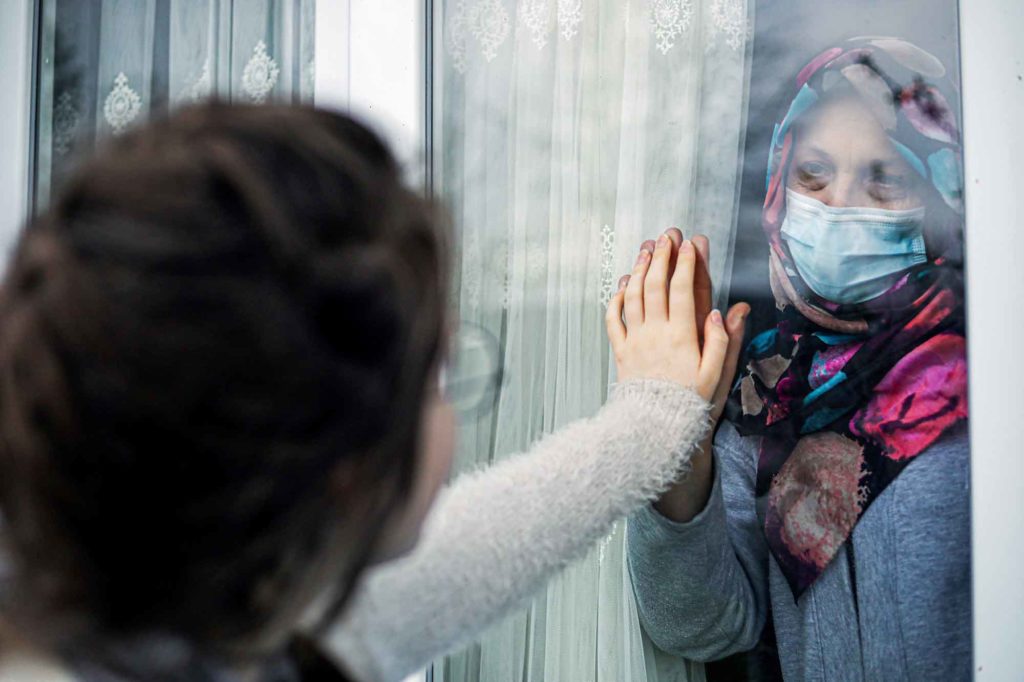APS Spotlight
Special Issue of Clinical Psychological Science Examines the Effects of COVID-19 on Mental Health

From its start in 2020, the COVID-19 pandemic brought global upheaval as it wreaked havoc on the health, economic conditions, and social dynamics of populations across the world. And although the virus itself exerts its deleterious effects largely on physical health, it has also had massive direct and indirect impacts on psychological and mental health.
In a special issue of Clinical Psychological Science (Vol. 10, Issue 6; November 2022), guest editors Cindy Liu (Brigham and Women’s Hospital), Thomas Rodebaugh (Washington University in St. Louis), and Darby Saxbe (University of Southern California) presented eight articles focusing on different aspects of mental health in the context of the global pandemic.
These articles looked at the experiences of different target populations—such as healthcare workers, Black Americans, and parents—and across different countries. Researchers examined various kinds of relationships and the factors that exacerbated the pandemic’s negative effects or conferred protection from them, such as social support or access to green space. Some articles used novel approaches, such as examining mental-state language in social-media posts or combining geodata and self-reports to accurately characterize access to green space.
Several articles examined pandemic effects on familial and cohabiting relationships, suggesting that living with close relations offered some protection against some of the negative effects of the pandemic, as well as pointing to a link between parental experiences of COVID-19-related stressors and children’s mental health. They also showed how parents’ use of mental-state language (indicating the level of consideration of their own mental states and those of their children) in parenting-related social-media posts changed during the pandemic and how access to green space modulated the association between lockdown duration and dysfunctional parent–child interactions.
Some articles took a scientific look at phenomena that were widely reported anecdotally, such as the ideas that the pandemic distorted our perception of time (particularly for those who also experienced increased loneliness) and that healthcare workers experienced greater traumatic stress than the general population. One study of Black Americans in the rural south, for instance, explored how prepandemic stressors and resources modulated the effects of COVID-19-related stressors, and another found that different forms of anxiety (e.g., generalized, social) predicted different trajectories of stress and worry during COVID-19’s early months.
Some results contravened expectations: The prevalence of COVID-19 in a particular geographic area, for example, did not show an effect on general distress or COVID-19 worry among residents (and in fact showed opposite effects in two demographically matched samples in the United States versus two samples in Italy).
Given the ongoing nature of the COVID-19 pandemic, the editors noted that the special issue is intended to help understand and articulate the effects of the pandemic rather than test interventions designed to mitigate or prevent these effects. However, the articles within the issue all contribute to the rapidly evolving knowledge base that will hopefully inform future treatments and interventions.
Feedback on this article? Email apsobserver@psychologicalscience.org or login to comment. Interested in writing for us? Read our contributor guidelines.





APS regularly opens certain online articles for discussion on our website. Effective February 2021, you must be a logged-in APS member to post comments. By posting a comment, you agree to our Community Guidelines and the display of your profile information, including your name and affiliation. Any opinions, findings, conclusions, or recommendations present in article comments are those of the writers and do not necessarily reflect the views of APS or the article’s author. For more information, please see our Community Guidelines.
Please login with your APS account to comment.